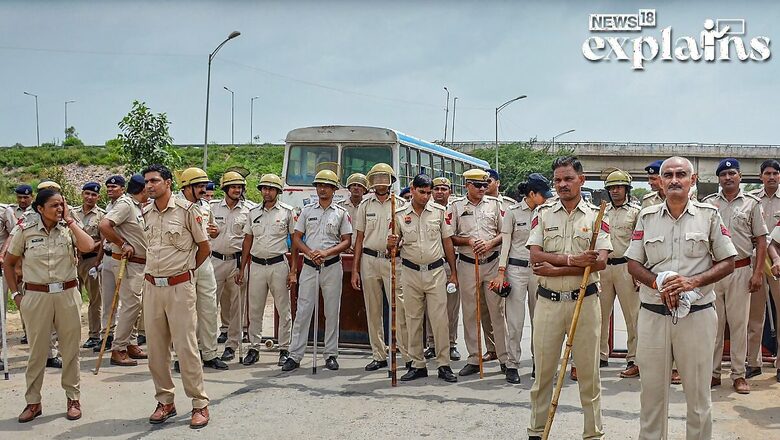
views
The government has introduced three bills- Bharatiya Nyaya Sanhita (BNS) Bill 2023, Bharatiya Nagarik Suraksha Sanhita (BNSS) Bill 2023, and Bharatiya Sakshya (BS) Bill 2023 to replace the Indian Penal Code 1860, Criminal Procedure Act 1898, and the Indian Evidence Act 1872 respectively to provide speedy justice and create a legal system that keeps contemporary needs and aspirations of the people.
While Bharatiya Nyaya Sanhita, that will replace IPC, addresses a range of issues including serious crimes, Prevention of crime against women, mob lynching and child trafficking among other crimes, the proposed Bharatiya Nagarik Suraksha Sanhita, that replaces CrPC, includes several provisions like trial in absentia, use of technology, mercy petitions and other safeguards.
Bhartiya Nagarik Suraksha Sanhita Bill will have 533 sections including 160 sections of old law have been changed, 9 new sections have been added and 9 sections have been repealed.
Here are some of the several important changes to the Criminal Procedure Code (CrPC) which guides the criminal justice system.
Trial in Absentia
The right of an accused to fully participate in the trial and offer a defence is part of the legal process. However, the Criminal Procedure Code doesn’t permit a trial in absentia and only allowed for recording evidence in the absence of the accused, according to The Indian Express.
With the proposed legislation, even if the accused is not present, the court can proceed to try him 90 days after the date on which charges are framed.
“Notwithstanding anything contained in this Sanhita or in any other law for the time being in force, when a person declared as a proclaimed offender, whether or not charged jointly, has absconded to evade trial and there is no immediate prospect of arresting him, it shall be deemed to operate as a waiver of the right of such person to be present and tried in person, and the Court shall, after recording reasons in writing, in the interest of justice, proceed with the trial in the like manner and with like effect as if he was present, under this Sanhita and pronounce the judgment," Section 356 of the Bharatiya Nagarik Suraksha Sanhita states.
Greater use of technology
The Bill states that trials, appeal proceedings, recording of depositions including those of public servants and police officers may be held in electronic mode. The statement of the accused can be recorded through video-conferencing while the summons, warrants, documents, police reports and statements of evidence can be done in electronic form.
Truly, a Quit India Moment! To overhaul country's criminal justice system which functioned under colonial era laws, HM Sh @AmitShah Ji introduced Bharatiya Nyaya Sanhita, 2023; Bharatiya Nagarik Suraksha Sanhita, 2023; & Bharatiya Sakshya Adhiniyam, 2023 in Lok Sabha today. pic.twitter.com/PFskpUrOXC
— Hardeep Singh Puri (@HardeepSPuri) August 11, 2023
The Bill also allows search and seizure of properties, article or thing on a visit to a crime scene by a forensic expert and the recording of the victim’s statement shall be audio-videographed, preferably on a mobile phone. The recordings will then be sent without delay to the District Magistrate, Sub-divisional Magistrate or Judicial Magistrate of the first class.
Communication devices
The Bill adds electronic communication including “communication devices" to the provision on summons to produce a document. It defines “electronic communication" means the communication of any written, verbal, pictorial information or video content transmitted through a mobile phone, wireless telecommunication device or a computer.
According to the new provision, a communication device containing digital evidence can be considered digital evidence and be produced for the purposes of any investigation, inquiry, trial proceeding.
Use of handcuffs
The bill states that a police officer may use handcuff while arresting a person if he is a “habitual, repeat offender who escaped from custody, who has committed offence of organised crime, offence of terrorist act, drug related crime, or offence of illegal possession of arms and ammunition, murder, rape, acid attack, counterfeiting of coins and currency notes, human trafficking, sexual offences against children, offences against the State, including acts endangering sovereignty, unity and integrity of India or economic offences."
Mercy petitions
There is a provision on procedures allowing a convict to file mercy petitions in cases of death sentence. The convict has to file petition within a period of thirty days after the date on which the Superintendent of the Jail informs him about the date of confirmation of the sentence of death.
Detention by police
There are also provisions for police to detain or remove any person resisting or refusing directions given as part of preventive action. The Bill also lays down provisions for preventive detention, detention of a person who has mental illness.




















Comments
0 comment